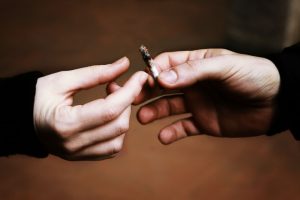After decades, it seemed there was finally a general bipartisan consensus – even if unspoken by some – that the so-called, “War on Drugs” was a failed one. Formally kicked off and coined in 1971 by President Nixon, it began with a primary focus on drug addiction treatment. However, it morphed over the next decade with the Reagan’s, “Just Say No” campaign to one of heavy-handed enforcement, including harsh minimum mandatory penalties on even low-level, non-violent drug offenders. 
But there was a recognition over time that this hyped enforcement did little to curb drug use, didn’t make communities safer and actually had a disproportionate impact on lower income and minority communities. In the last decade, there has been a reversing trend that once again focuses on treatment and has peeled back some of the tougher penalties for low-level drug crimes. Marijuana is now legal in most states (including Florida) for medicinal purposes and in a handful of states for recreational use and sales.
However, some are concerned that new U.S. Attorney General Jeffrey Sessions may be preparing to crack down once more. Sessions has a long history of disdain for drug use and drug users. Still, some thought it unlikely he would return to policies that had proven unpopular and ineffective. Still, some of his recent comments seem to indicate he may not back down. Continue reading
 Fort Lauderdale Criminal Attorney Blog
Fort Lauderdale Criminal Attorney Blog












